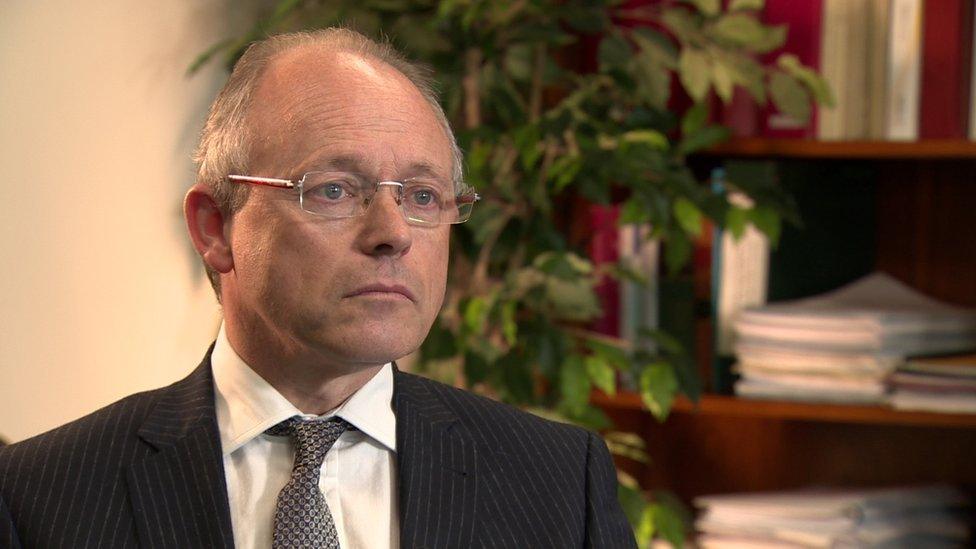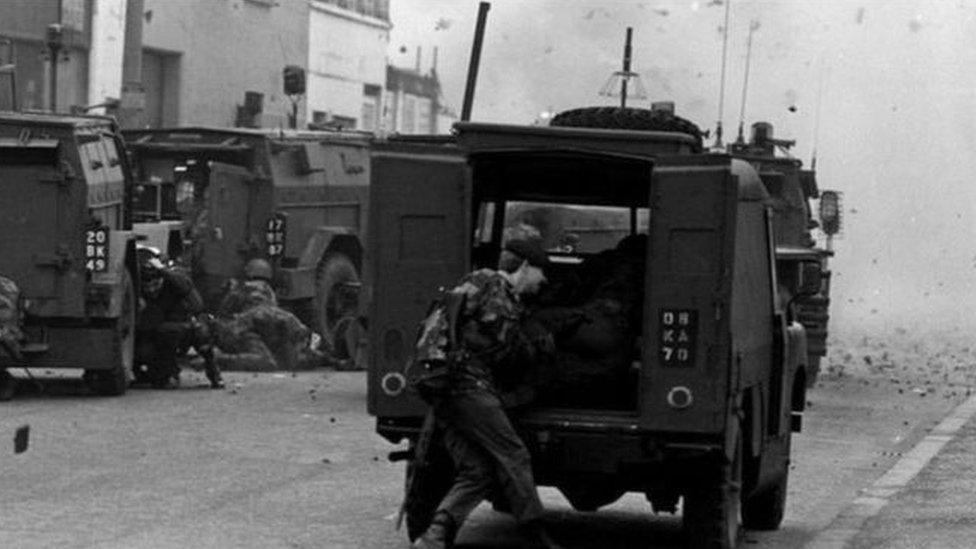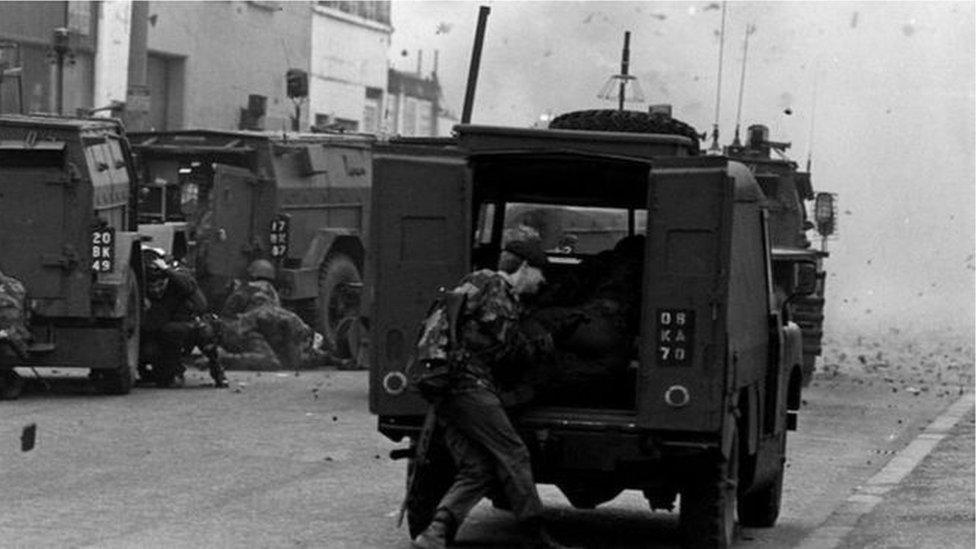Barra McGrory says critics have 'insulted him'
- Published

Barra McGrory rejected suggestions by some MPs and national newspapers that he could not be impartial
The director of public prosecutions for NI has said critics who accuse him of treating former soldiers unfairly have insulted him and his office.
Barra McGrory QC says he is mystified by claims that he did not act impartially when he brought charges against a small number of ex-soldiers.
They are facing prosecution over killings during the Troubles.
A number of unionist and Conservative MPs have claimed cases involving the army are being unfairly prioritised.
"That is just not correct, that is inaccurate," Mr McGrory told the BBC.
"We have taken decisions in three army cases recently, one was not to prosecute and in the other two prosecutions have been initiated.
"In the overall context of what we do these are a tiny number of cases. We receive 40,000 files a year, we take over 2,000 cases a year to the Crown court, and we are talking here about three cases.
"Even in terms of legacy cases, the reality is that we have prosecuted more legacy cases connected with paramilitary cases than we have in respect of military cases."
Mr McGrory says a number of cases involving former soldiers were coming to court now because of inquests and referrals from the Attorney General for Northern Ireland.
'Mystified'
He rejects suggestions by some MPs and national newspapers that he cannot be impartial when making decisions about army cases because of his previous career as a solicitor, when clients included Sinn Féin president Gerry Adams and other senior republicans.
"Mystified is about the mildest way I can put it," he responded.
"Anyone who is informed about these matters would know that as a professional lawyer you represent anyone who seeks representation from you.

Soldiers in Northern Ireland pictured during the Troubles
"I have been a professional lawyer for 30 years, during which period I have represented loyalist paramilitaries, republican paramilitaries, members of the DUP, the Official Unionist Party, members of Sinn Féin.
"I have represented a broad cross-section of people, so who I have represented in the past really has got nothing to do with it."
Some politicians have suggested the government should introduce emergency legislation to prevent the prosecution of former soldiers for Troubles-related killings.
A London-based law firm representing a number of ex-members of the army has also called for an independent inquiry into the decision making process.
I asked Mr McGrory if he viewed the criticism as an attempt to influence his decision making and to put pressure on him not to prosecute former soldiers.
"If they are not trying to influence me then they are certainly being personally insulting, and they are questioning my integrity," he says.
"But what concerns me more about that is that it is insulting to this office and to the lawyers who work here and do their work day and daily with absolute integrity and to the best of their ability.
"So I am personally offended by the remarks, but I am more offended on behalf of the individuals who work for the public prosecution service and who do a fantastic job, so I think those who are making those comments ought to think a bit carefully before they speak in such a way."
'New evidence'
Critics have also questioned how the director of the PPS could decide to charge former soldiers when one of his predecessors said there was insufficient evidence to merit a prosecution.
They have suggested Mr McGrory reached a different conclusion based on the same evidence.
"That's just inaccurate," he says.
"In each of the three soldier cases this office has examined, there has been new evidence.
"Whether that be evidence which has been forthcoming following an inquest and referred to me by the coroner, pursuant to the powers available to the coroners, or new evidence obtained by the PSNI in the context of its investigations, or in any other context through ballistics or forensic evidence which has emerged through a variety of routes since the original decision was taken.
"Anyone who has said this is a re-taking of a decision in respect of which nothing else has changed is quite simply wrong."
- Published25 January 2017
